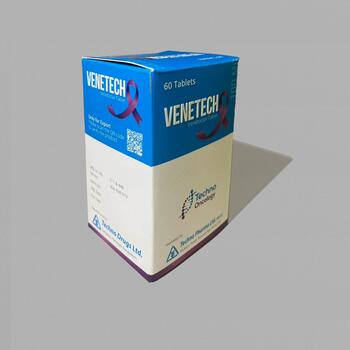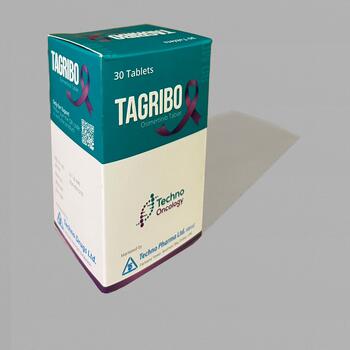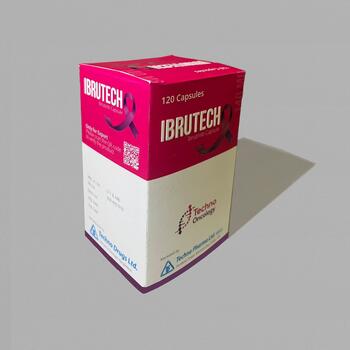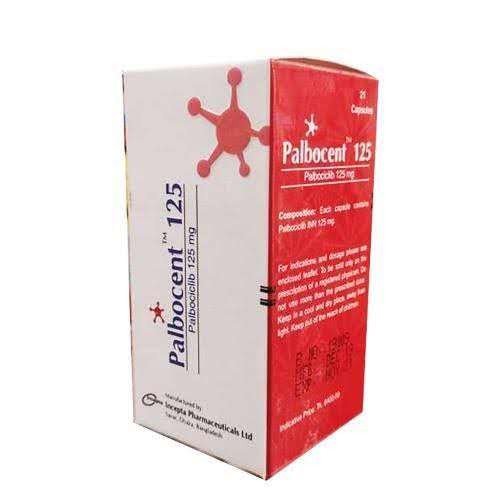瑞戈非尼(Regorafenib)40mg
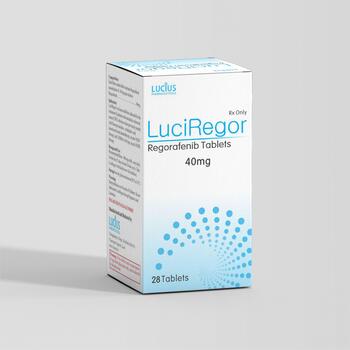
1. Composition:
The main active ingredient of regorafenib is regorafenib (Regorafenib). Its chemical name is 4-{4-[3-(4-chloro-3-trifluoromethylphenyl)ureido]phenoxy}-N-methylpyridine-2-carboxamide, with the molecular formula C21H15ClF4N4O3 and a molecular weight of 482.82. Each tablet of regorafenib contains 40 mg of the active ingredient, along with other excipients.
2. Pharmacodynamics:
Regorafenib is a multi-target tyrosine kinase inhibitor, primarily achieving anti-tumor effects by blocking cancer cell growth and angiogenesis signaling. It inhibits various receptor tyrosine kinases such as VEGFR, PDGFR, KIT, and RET, interfering with tumor angiogenesis, cell proliferation, and metastasis. This broad-spectrum inhibitory action makes regorafenib effective for multiple cancer types, especially advanced or recurrent solid tumors that have failed standard treatments.
3. Usage Instructions:
Regorafenib is typically provided in 40 mg tablet form. The recommended dosage is 160 mg (4 tablets of 40 mg) orally once daily for 21 days in each treatment cycle, followed by a 7-day rest period. It should be taken after a low-fat meal, preferably at the same time each day to maintain stable drug levels.
Depending on the patient’s condition, doctors may adjust the dosage, especially if adverse reactions occur. Regorafenib treatment should be supervised by a doctor experienced in cancer therapy.
4. Research & Development History:
Regorafenib was developed by Bayer, a German company, initially as a chemical derivative of sorafenib. It was first approved by the U.S. FDA in 2012 for the treatment of metastatic colorectal cancer in patients who had failed chemotherapy. Later, its indications were expanded to gastrointestinal stromal tumors (2013) and hepatocellular carcinoma (2017). The development of regorafenib marked a significant advancement in the field of multi-target anti-cancer drugs.
5. Mechanism of Action:
Regorafenib inhibits multiple receptor tyrosine kinases, blocking signaling pathways related to cancer cell proliferation, tumor angiogenesis, and cancer metastasis. Specific targets include vascular endothelial growth factor receptors (VEGFR), platelet-derived growth factor receptors (PDGFR), stem cell factor receptors (KIT), and other kinases involved in tumor microenvironment regulation and tumor growth. The inhibition of these targets works in synergy to prevent tumor spread and growth, and reduce blood supply to the tumor.
6. Summary:
Regorafenib is a multi-target oral anti-cancer drug mainly used for treating advanced colorectal cancer, gastrointestinal stromal tumors, and hepatocellular carcinoma after standard treatments have failed. By inhibiting multiple tyrosine kinases involved in tumor growth and angiogenesis, it blocks cancer cell proliferation and metastasis. Regorafenib’s wide range of targets makes it one of the last treatment options for patients with various solid tumors.



